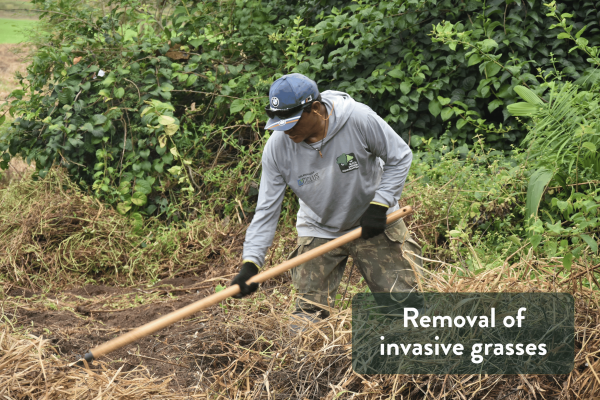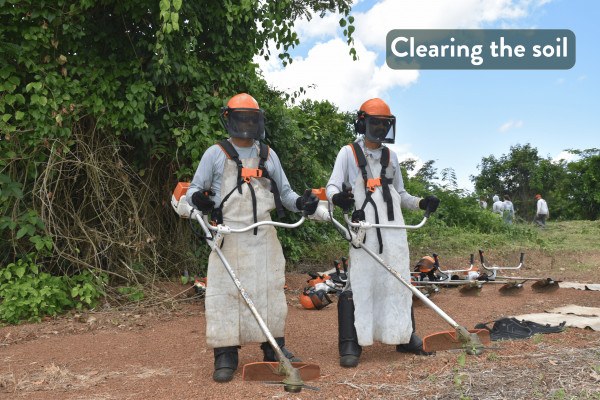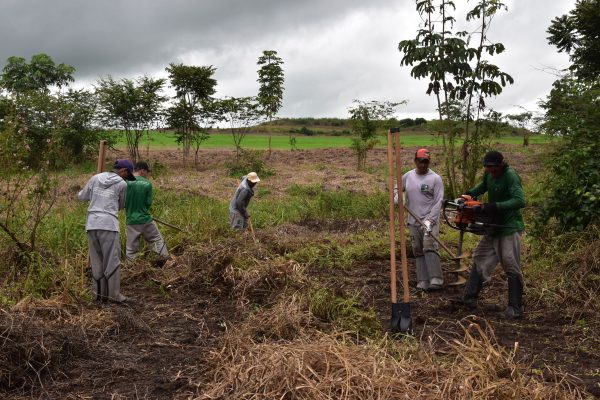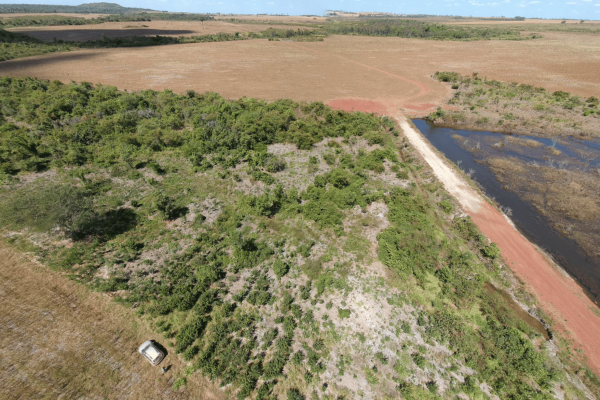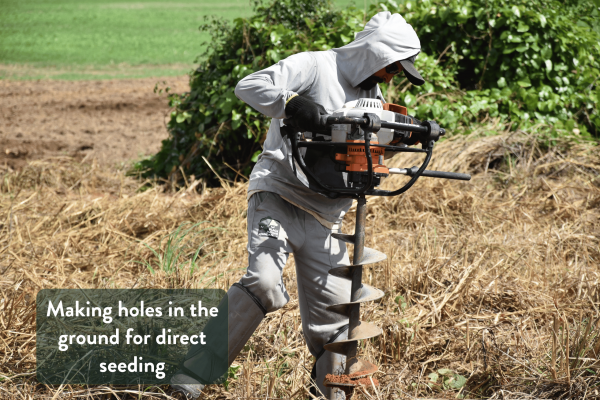As we are finalising our 2021/2022 planting season, our field team has started carrying out maintenance activities for our planted seedlings!
Our technical team has diligently been going through all areas currently undergoing ecological restoration and monitoring their progress. This allows us to identify any future steps that are still needed for maintenance and contributes to planning for the next rainy season.
This involves evaluating the last planting season, the irrigation of areas where we planted trees during the last rainy season, and removing invasive grasses, among other activities.
THE FOLLOWING VIDEO SHOWS SOME OF OUR TEAM MEMBERS CLEARING THE SOIL AND MAKING HOLES IN THE GROUND FOR DIRECT SEEDING
REFLECTING ON THE 2021/2022 PLANTING SEASON
The 21/22 planting season brought with it many valuable learning moments for our technical team: we improved our direct seeding techniques, joined forces with Ciclus – a company that specialises in planning, implementing, and monitoring ecological restoration, and strengthened our relationship with rural landowners in the region.
Implementing these measures allowed us to successfully carry out ecological restoration in the following six partner farms: Fazenda Santa Fé, Fazenda Serra Morena, Fazenda Santa Izabel, Fazenda Bela Vista, Fazenda Cantão, and Fazenda Anajá. The first three are located in Santana do Araguaia (PA), while the other three farms are in the municipalities of Caseara and Marianópolis do Tocantins (TO).
The progress made during this season was made possible by the continuous support and trust that we receive from our amazing supporters and landowner partners.
PLANNING FOR OUR FIRST MILLION TREES
While our field team is conducting maintenance activities, they are also planning for the next planting season, which will start somewhere between September and October 2022!
Environmental restoration is a long and complicated process which requires a series of steps. First, we need to map all the ecological restoration sites for the planting season. Following this, the planting techniques to be used per hectare of land are defined in all of the rural properties that the Black Jaguar Foundation has agreements with. Simultaneously, our field team makes sure that we have enough seedlings for the planting season.
Our planting season can only begin after all these steps have been completed!
In the next rainy season, our objective is to complete our first million native trees! To accomplish this, we have built one of the biggest nurseries in Santana do Araguaia, which will have the capacity to produce 500 thousand seedlings per year.

